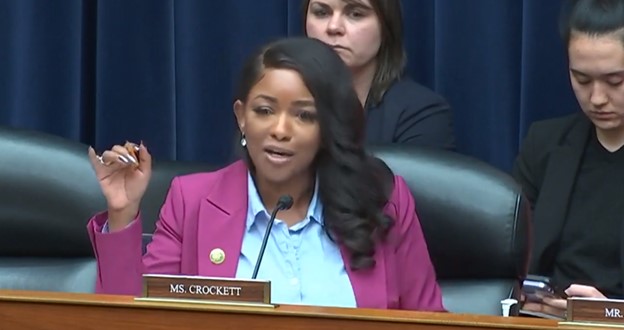After a significant electoral defeat, the Democratic Party has opted for stability over aggression in its leadership decisions. In a recent vote for the chair of the Democratic Policy and Communications Committee, Rep. Debbie Dingell of Michigan successfully thwarted a challenge from the more progressive Rep. Jasmine Crockett of Texas. The caucus vote revealed a clear preference among House Democrats for Dingell, who received 152 votes compared to Crockett’s 59. This outcome illustrates a certain degree of consensus within the party hierarchy, even as Crockett, a second-term representative, sought to disrupt the established order by positioning herself as a voice for modernization in the wake of the party’s losses in the 2024 elections.
Dingell’s victory can be viewed against the backdrop of a lack of support for Crockett’s last-minute campaign. Notably, she had minimal backing during the vote, with Dingell getting the endorsements of several prominent Democrats while Crockett’s support came solely from herself. This imbalance in backing reflects the underlying sentiment in the party, which appears to lean towards maintaining established leadership rather than embracing a more radical or untested alternative. Despite Crockett’s self-styled image as an innovator in new media, her approach and past confrontations in Congress may not have been persuasive enough for her colleagues, highlighting the difficulties that progressive challengers often face within the Democratic establishment.
Crockett’s claims of being a “master of new media” need to be carefully scrutinized. Her emergence in the political arena has been marked by controversial exchanges, particularly during confrontations with Republican representatives. A notable incident occurred during a May House Oversight Committee hearing, where Crockett and Rep. Marjorie Taylor Greene engaged in a heated exchange reminiscent of reality television confrontations. This episode, among others, garnered significant media attention, but it raises questions about the effectiveness of such dramatic tactics in achieving substantive policy changes or garnering broad party support.
In her critiques, Crockett has not shied away from inflammatory rhetoric, as evidenced by her confrontational remarks about fellow Congress members. During a hearing focused on issues surrounding Hunter Biden, Crockett targeted GOP Rep. Nancy Mace with accusations of cultural insensitivity regarding “white privilege,” a move that exemplified her combative style. Such tactics may resonate with certain voter bases but could alienate moderate Democrats who favor a more conciliatory political approach. By positioning herself as a battler against perceived injustices while also casting herself as a modernizing force, Crockett illustrates the friction between progressive aspirations and the more cautious, traditional governance preferred by the party’s leadership.
In light of the recent electoral setbacks, the Democratic Party faces significant challenges in reshaping its image and strategy. Rather than switching to new leadership, Democrats have attempted to consolidate power around established figures like Dingell, reflecting a desire for continuity in the face of crisis. However, the party’s inability to embrace a more radical shift in leadership indicates deeper issues in how it responds to the changing political landscape and voter sentiments. While the choice of Dingell over Crockett might signify a commitment to experience, it also raises doubts about the party’s willingness to engage with younger, more progressive voices and ideas that could reinvigorate its base and appeal to a broader electorate.
The absence of significant leadership changes within the Democratic Party post-election suggests a concerning complacency amid evident public dissatisfaction. This dynamic risks reinforcing the status quo at a time when fresh perspectives and approaches may be necessary to attract new voters and address contemporary issues effectively. Crockett’s viral moments and confrontational style, while polarizing, demonstrate a different kind of energy that some party members believe is needed to resonate with a younger electorate. Ultimately, while the recent leadership vote may provide some short-term stability for the Democrats, it poses the question of whether the party can evolve and adapt effectively to the demands of its diverse constituents in a rapidly changing political environment.

